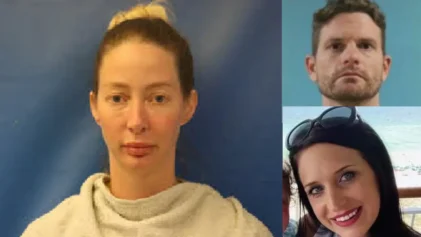Model Ebonee Davis struggled for years because she didn’t fit society’s image of beauty, but now she advises young girls not to run away from their Blackness in a powerful TED Talk calling out the fashion industry role in perpetuating anti-Blackness.
In addition to being a model appearing in the Adidas Originals “We The Future” campaign, as well as Sports Illustrated and Calvin Klein ads, Davis is a writer and activist who isn’t afraid to criticize the fashion industry for its diversity issues. In a TED Talk on Wednesday, Feb. 15, at the University of Nevada, she blamed insecurity for her desire to straighten her hair, have blue or green eyes and confirm to European beauty standards.
“To be born Black in America is to be born into a world that makes you feel inferior before you can even take your first step,” Davis says. “It is to be under constant mental and spiritual attack. It was not only our bodies that were taken during slavery but our identities as well.”
The “erasure and forced assimilation” continues, she said. Young children are constantly told that their hair is too coarse and that it doesn’t grow, told their noses are too wide and lips are too big and skin is too dark, creating internal battles that manifest into self-hate.
Despite knowing the modeling world would perpetuate these destructive ideals, Davis pursued a career and signed a contract after moving from Seattle to New York City.
“I figured that once I got a contract, the industry would open up for me,” Davis explains. “But at every turn, I was met with resistance. I had white agents with no knowledge of Black hair care run their fingers through my hair and tell me things like, ‘We already have a girl with your look.’ Translation: All Black girls look the same.”
Agencies disparaged her, saying she would not get high-quality work because she was Black. They challenged her decision to go natural and criticized her decision to work for Black media outlets like Essence, but she was undeterred.
The constant backlash against her and the July 2016 police murder of Alton Sterling in Baton Rouge, La., inspired her to stand up and speak out about the industry’s lack of Black models. She wrote a letter to the fashion industry that called out the various ways Black models are taken advantage of and not given quality work.
“Inclusion doesn’t just mean one token Black model,” she argues in her TED Talk. “I don’t want to be hired so I can fill an HR box. I want to be hired for my unique contribution to the industry. Instead of forcing my beauty into your pre-existing box and asking me to change, expand your definition of beauty to be inclusive.”
https://www.instagram.com/p/BMomVGsj1yd/


